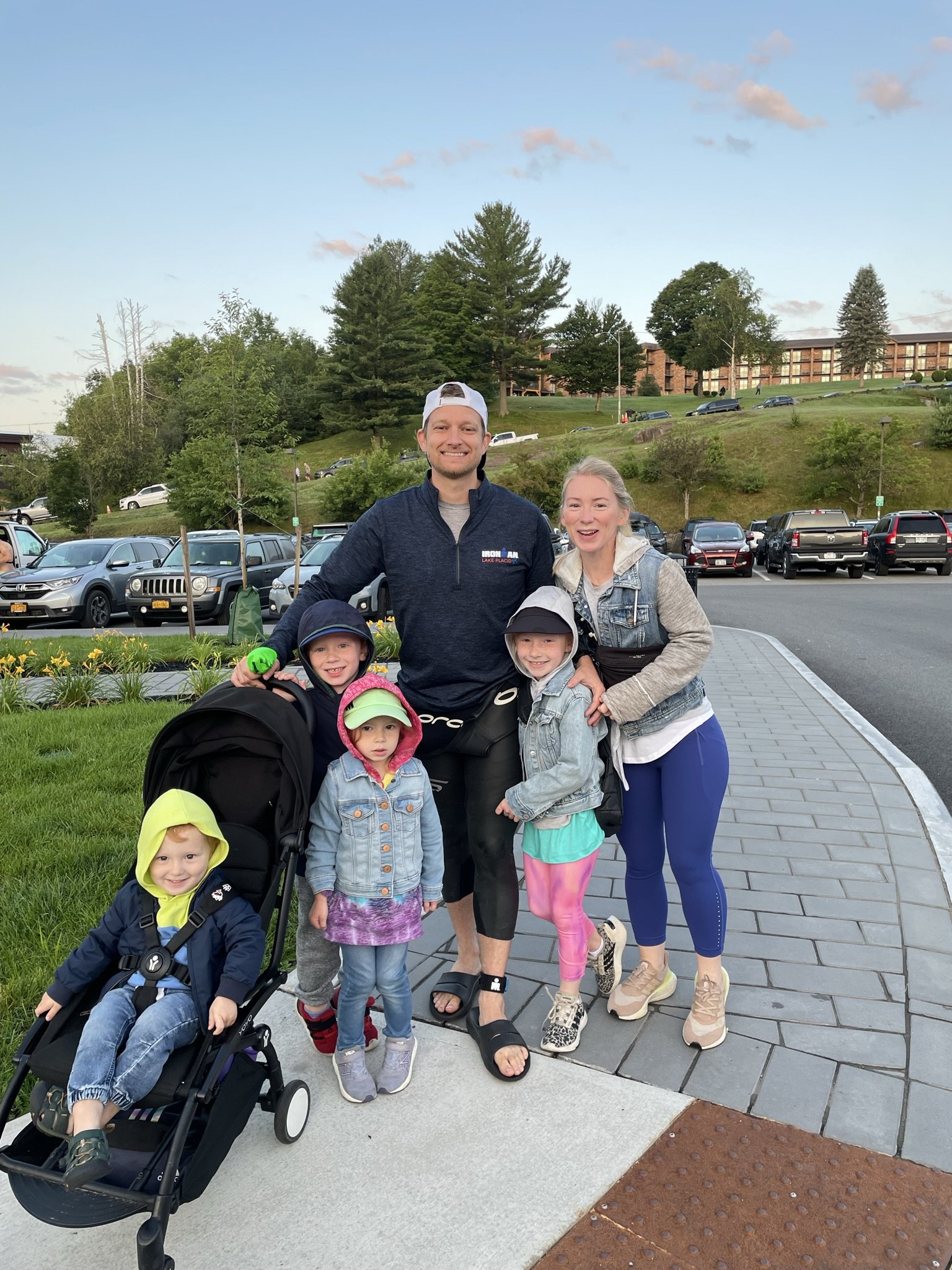
Welcome to my website! My name is Marshall Bahr, and I am a passionate individual with a diverse range of interests. I am currently in medicine as both a physician and an administrator.
Family is a major priority for me, and I believe that the love and support of loved ones is essential for a happy and fulfilled life. In my free time, I enjoy staying active and maintain a healthy lifestyle through fitness, whether it’s through weightlifting, adventure racing, or triathlons. I also have a keen interest in food and enjoy experimenting with new recipes and cuisines.
Travel is another passion of mine, and I believe that exploring new places and cultures is one of the best ways to broaden our horizons and gain a new perspective on the world.
I believe that we all have the ability to inspire others and make a positive impact on the world, and I hope to do just that though my website. Here, you’ll find information on my journey in the military, medicine, my family, my fitness, my food adventures, and my travels. I’ll also share my thoughts and experiences, and offer tips and advice to help you live your best life. Thank you for visiting, and I look forward to connecting with you!

Research Publications
Esmolol, Antinociception, and Its Potential Opioid-Sparing Role in Routine Anesthesia Care
Marshall P Bahr, Brian A Williams
In this Daring Discourse narrative, we describe the role of esmolol in current perioperative β-blockade guidelines (related to noncardiac surgery), briefly describe studies supporting the antinociceptive effects of esmolol, propose mechanisms for esmolol antinociception, and forecast potential routine esmolol use intraoperatively (as part of a multimodal total intravenous anesthetic) and its effects on opioid sparing.
Human Granulocytic Anaplasmosis as a COVID-19 Mimicker
Deeksha Ramanujam, Adeel Nasrullah, Marshall Bahr, Obaid Ashraf, Khalid Malik
A case of HGA in which diagnosis was delayed due to mimicry of COVID-19 infection. This case highlights the importance of taking clinical and social histories, seasonality and geography into account during diagnosis, and maintaining a broad differential with non-specific symptoms. Despite the current COVID-19 pandemic, we recommend that HGA remains in the differential diagnosis of a pro-inflammatory state with an atypical respiratory presentation.
International assessment of massive transfusion protocol contents and indications for activation
Reggie R Thomasson, Mark H Yazer, James D Gorham , Nancy M Dunbar; MTP Use Study Investigators, on behalf of the Biomedical Excellence for Safer Transfusion (BEST) Collaborative
Massive transfusion protocols (MTPs) provide blood products rapidly and in fixed amounts. MTPs are commonly used in trauma but may also be used in other clinical settings, although evidence to support fixed-ratio resuscitation in nontraumatic hemorrhage is lacking. The goals of this study were to describe the types and contents of available MTPs and the clinical indications for MTP activation.
Whole blood for the acutely haemorrhaging civilian trauma patient: a novel idea or rediscovery?
M. P. Bahr, M. H. Yazer, D. J. Triulzi, R. A. Collins
The concept of whole blood (WB) as a treatment modality for trauma patients requiring transfusion therapy is not new. Successfully employed in the early 20 century, WB was the product of choice for military trauma resuscitation until the advent of component therapy changed the landscape of transfusion medicine. However, the recognition of the success of WB in the military operational setting has provided some enthusiasm to explore its revival as a cold-stored option in the civilian trauma resuscitation sector. Concerns continue to exist over potential limitations for its application in regards to the efficacy of platelets after cold storage, the risk of haemolytic transfusion reactions following the transfusion of un-cross-matched WB and the logistical issues for civilian blood banks in providing WB. This review aims to reconcile these concerns with data available in the literature, with a view to establishing that there is in vitro evidence supporting the haemostatic effects of cold-stored WB as a potential therapeutic option in both the pre-hospital and in-hospital civilian trauma resuscitation settings.
J N Seheult, M P Bahr, P C Spinella, D J Triulzi, M H Yazer
The use of low anti-A and -B titer group O whole blood (LTOWB) has recently been rediscovered for use in massively bleeding trauma patients. Whole blood has several advantages over conventional component therapy for these patients, including simplifying the logistics of the resuscitation, being more concentrated than whole blood that is reconstituted from conventional components, and providing cold-stored PLTs, amongst other benefits. While randomized controlled trials to determine the efficacy of using LTOWB in the resuscitation of massively bleeding trauma patients are currently underway, retrospective data has shown that massively bleeding recipients of LTOWB with traumatic injury do not have worse outcomes compared to patients who received conventional components and, in some cases, recipients of LTOWB have more favourable outcomes. This paper will describe some of the advantages of using LTOWB and will discuss the emerging evidence for its use in massively bleeding patients.
Human Granulocytic Anaplasmosis Presenting as Novel Coronavirus Disease 2019 (COVID-19)
Marshall Bahr M.D., Paige Langhals-Totino DO, 1Adeel Nasrullah MD, Christine Herb MD
Human granulocytic anaplasmosis (HGA) is a tick-borne rickettsial disease caused by A. phagocytophilum. HGA typically presents with a subclinical infection however, up to 3% of cases may develop potentially life-threatening disease associated with multi-organ failure. In severe disease, the pro-inflammatory immune response associated with HGA can mimic other infectious inflammatory illnesses, which in this case presented similar to COVID-19.
Jonah Abraham, Douglas Adams, Marshall Bahr, and Sanford Littwin
Book chapter describing common drugs and there pharmacology in respect to general anesthesiology.
